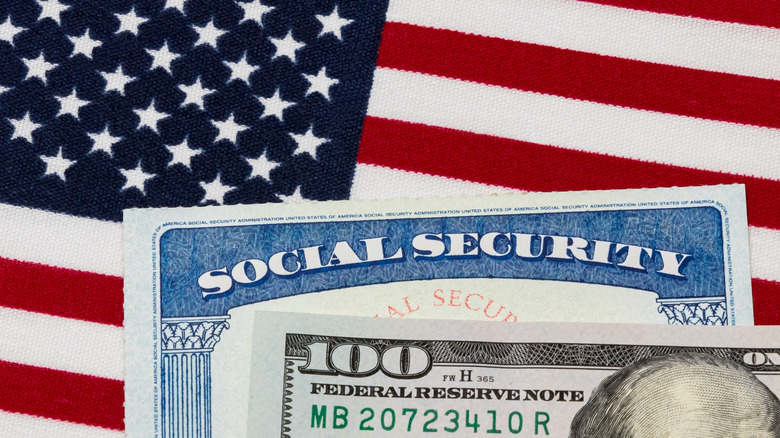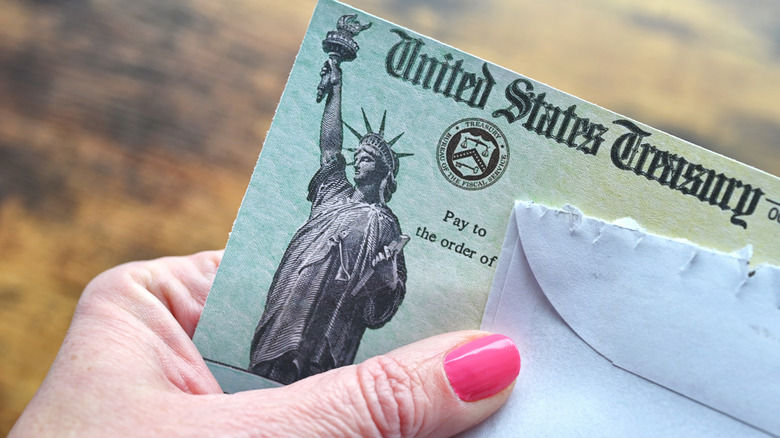A Cost-Cutting Change Is Coming To Social Security Checks At The End Of September
The federal government is a sprawling tangle of projects and policies. The Social Security Administration (SSA), in particular, is one of the most substantial components of the federal government. The benefits that are sent out monthly — not to mention the program's additional responsibilities — make up the government's largest financial commitment. This is just one facet of the many myriad facts that recipients should know about their benefits. Social Security benefit checks help lift over 16 million older Americans out of poverty by Center on Budget and Policy Priorities estimates. However, despite already being a rocky year for Social Security, the administration's benefits checks will also be changing, and soon.
If you're one of the roughly 500,000 Americans still receiving a physical benefits check in the mail, the look of your benefits payment will change starting on September 30, 2025. Per an executive order from March 2025, the SSA is making an important change to the way physical payments are processed. Namely, the federal government will no longer issue physical checks for Social Security payments and other deposits to recipients. It's estimated that paper checks cost roughly 50 cents to deliver to each recipient. In contrast, the same payment costs about 15 cents to make electronically. If these figures hold up, that translates to a $175,000 monthly savings, or an annual reduction in administrative costs of a little more than $2 million. With that said, if you already receive direct deposits, there's nothing you need to do. However, for paper check recipients, action is required to prevent an interruption of benefits payments.
Take steps to account for this cost-saving change
If you are one of the remaining Social Security recipients who still receives checks in the mail, setting up a direct deposit with the SSA is imperative. You can call the Social Security Administration to get this done, or enroll at GoDirect.gov. If you don't have a bank account, opening one at a local branch, exploring Federal Deposit Insurance Corporation (FDIC) resources, or even pursuing a Direct Express® Debit card for SSA deposits are all available options.
It's also important to realize that cutting costs is just one element of this SSA change. The White House's statement on this executive action notes that checks issues by the Treasury Department are 16 times more likely to encounter Social Security fraud and other issues than electronic deposits. Losing a check, having it stolen while in transit, or damaging the crucial piece of paper before you can deposit it are all entirely possible scenarios with a physical check. Meanwhile, with a direct deposit, these issues simply don't factor into the process of delivering funds directly into a recipient's account. While the change may be surprising to those who have clung to physical checks, it's important to make appropriate preparations to avoid an interruption to your benefits.

